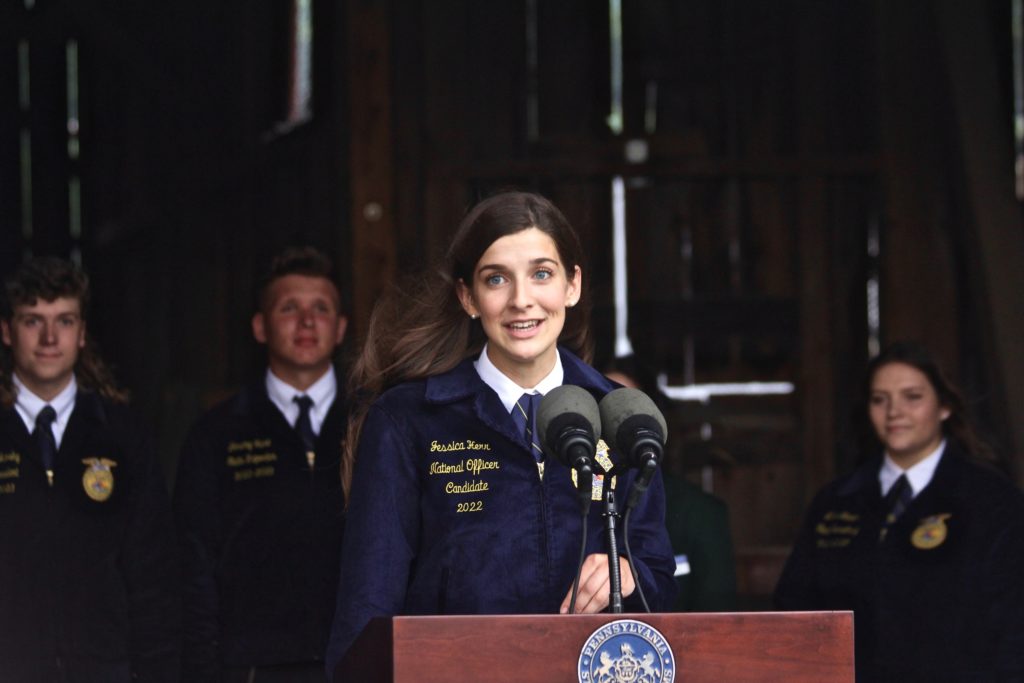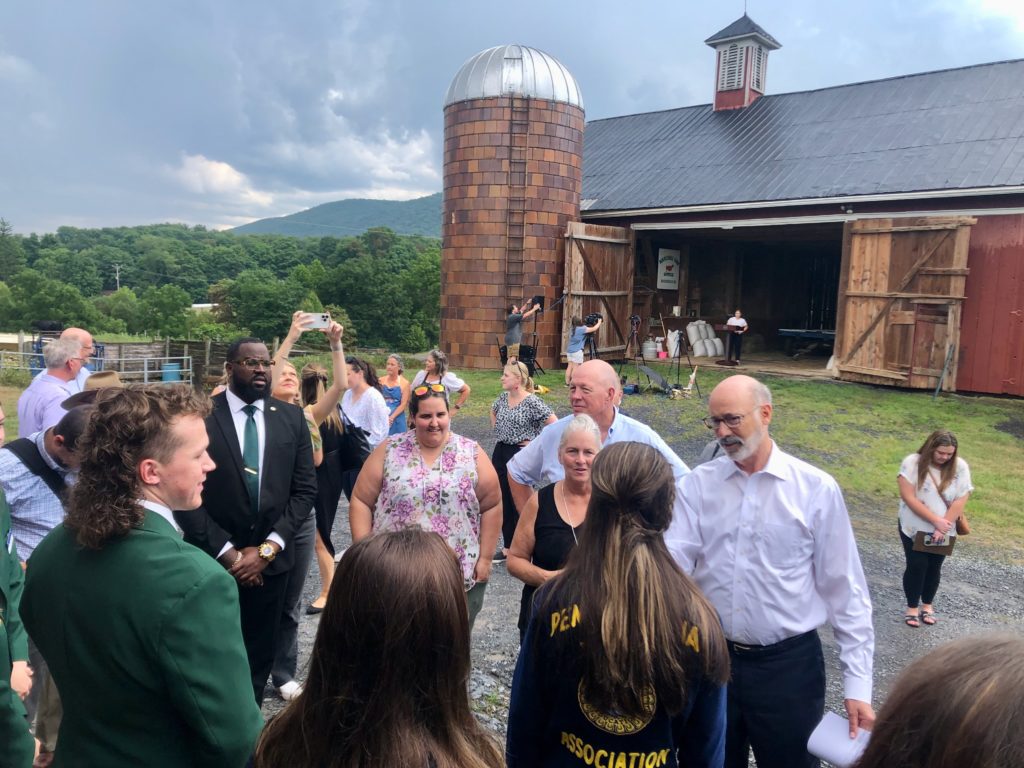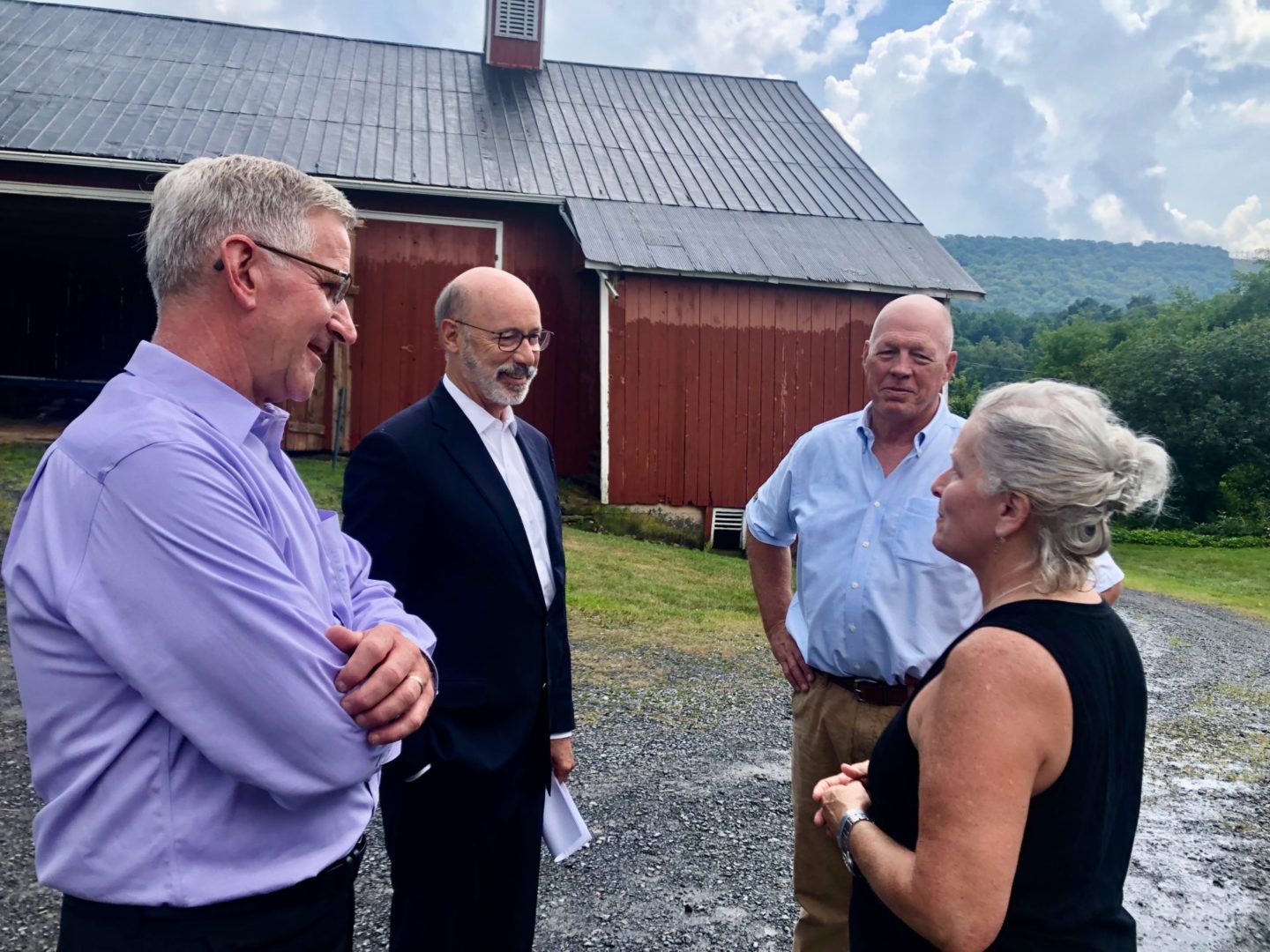State officials and agricultural representatives joined Gov. Tom Wolf on Thursday at Hess Farm in Harris Township to celebrate the successes of the Pennsylvania Farm Bill, which has invested more than $76 million in the commonwealth’s agriculture industries since it was signed into law in 2019.
“Agriculture is the backbone of our economy,” Wolf said. “When our farmers succeed, we all succeed. Strong agriculture in Pennsylvania leads to a lot of local booming economies, an abundance of healthy food for our families and more stable supply chains for the goods we rely on each and every day.”
Hess Farm represents one of the myriad ways hundreds of farmers, other businesses and programs have benefited from the bill.
It’s been a family farm since the 1840s. Owners Jeff and Cindy Harding said their five children are the seventh generation of the family on the beef farm.
“We really believe as farmers we’re stewards of the land,” Jeff Harding said. “We don’t own the land, we just work it. We take care of it…. One of the things we’re so proud of in agriculture is that the world has to eat, and truly if there’s anything above politics in today’s world, it’s food production. We all need to eat, the world needs to eat and we’re so proud that we can help with that … on a local basis as we do our part in helping to feed the world.”
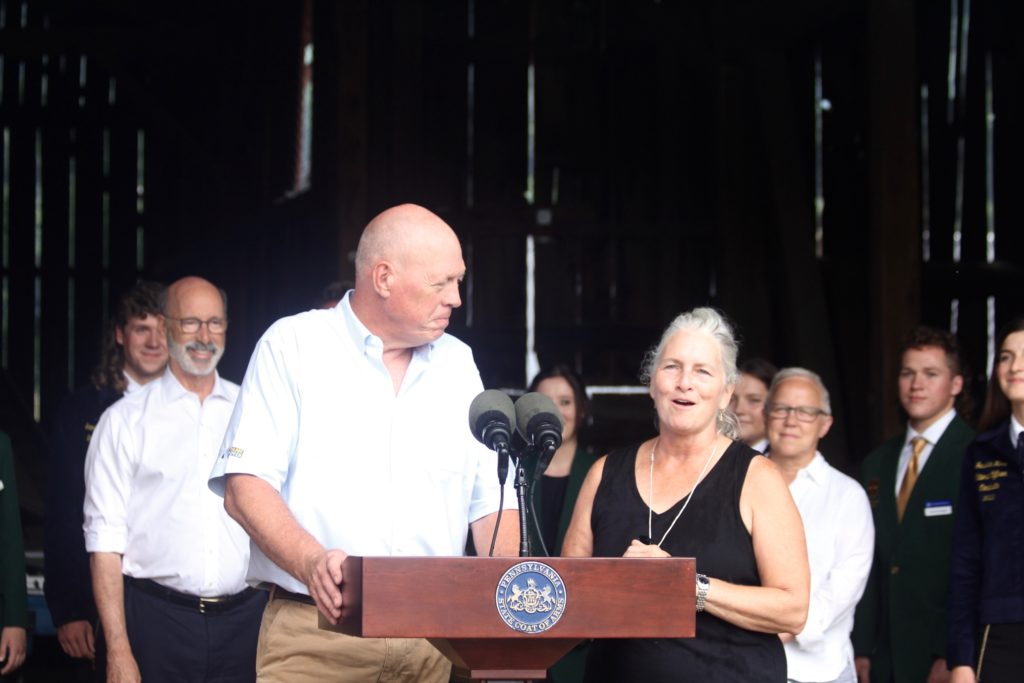
The Hardings were able to use a $7,500 Farm Vitality Grant made possible through the bill to assist with succession planning, with the hope that one day in the future Hess Farm will transition to their children.
The Farm Bill, Wolf said, is a comprehensive effort to ensure the success of multigenerational and new farmers as well as aiding consumers and the environment.
“We wanted to support future success for farmers. We wanted to remove barriers to entry for new farmers to make that succession process easier. Basically, we wanted to increase food security for everybody,” Wolf said, “I’m proud to say that we’ve made progress on each of these fronts. Over the past three years the PA Farm Bill has invested nearly $76 million dollars in hundreds of projects all across the commonwealth and it has helped new farmers get a foothold. It has ensured generations-old farms like this one have a blueprint for a smooth transition and a successful future.”
The first state-level farm bill in the nation, the Pennsylvania Farm Bill is a package of 14 legislative pieces that passed with bipartisan support in an effort to ensure the future of what is currently a $132 billion industry — the single largest industry in the state, representing about 17% of the commonwealth’s economy.
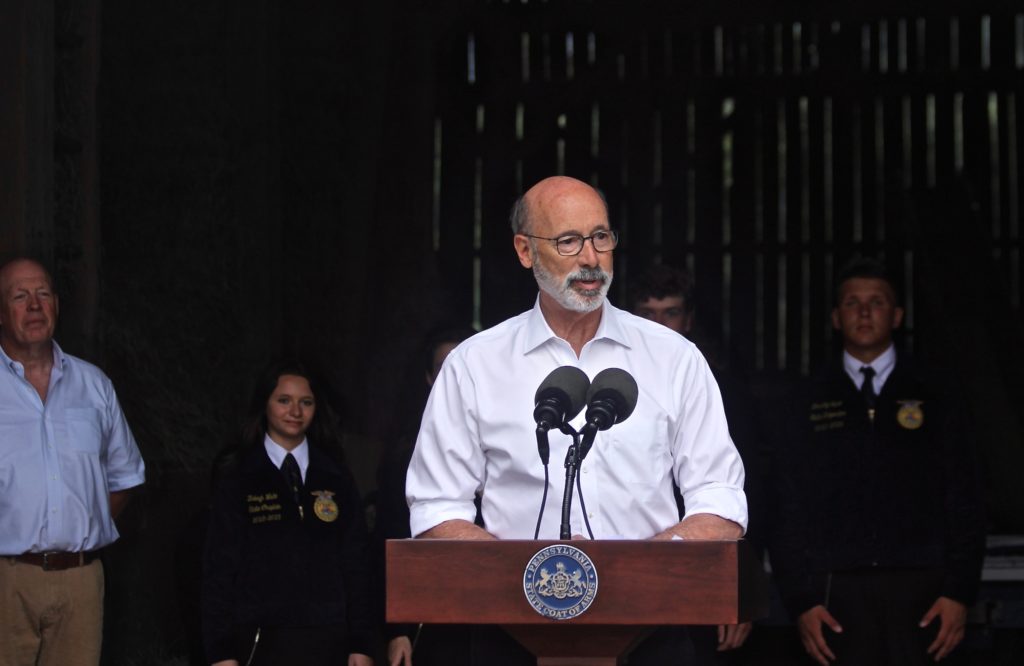
“It’s allowed us to grow infrastructure, to stifle food deserts in places where they exist and nourish communities,” Wolf said. “It’s helped us improve the health and sustainability of our farms and also, not so incidentally, our environment. It has invested in hands-on opportunities for the next generation and it’s done much, much more.”
Pennsylvania House Majority Leader Kerry Benninghoff, R-Bellefonte, said the bipartisan support for the bill has been reflected in ongoing work among the General Assembly and the governor’s administration, such as subsequent bills related to environmental initiatives to support farm health and for liability protections.
“For those of us who are not farmers and have not been participating in that in a multi-generational manner, we need to appreciate when we go to the grocery store where this comes from,” Benninghoff said. “It’s a lot of hard work. It doesn’t stop due to rain. It doesn’t stop due to drought. And it doesn’t stop due to snow.”
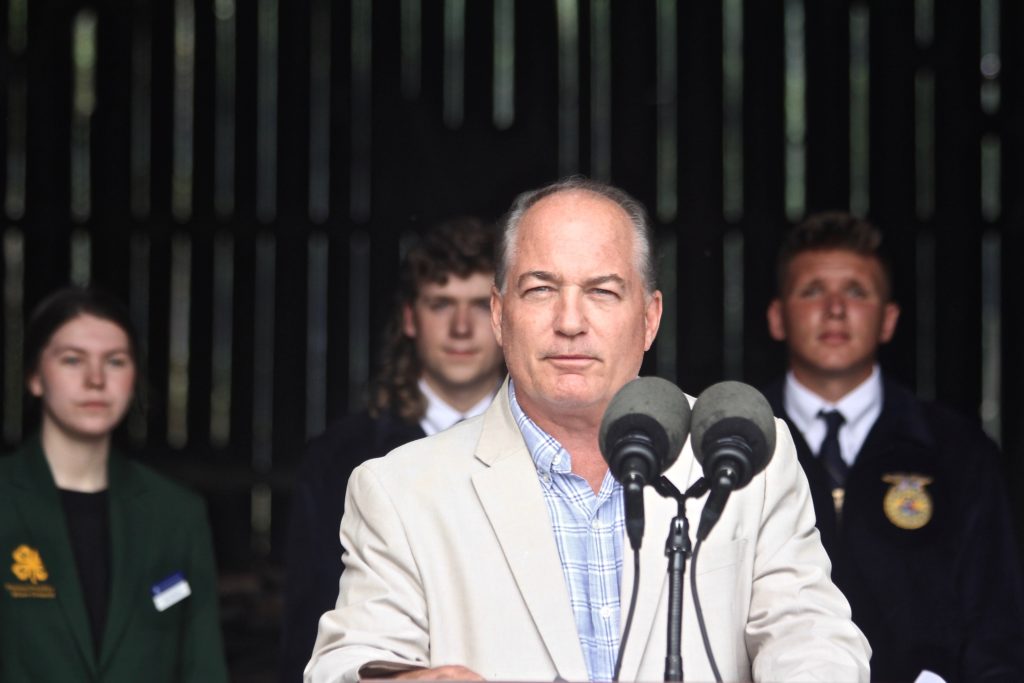
Juniata County farmer Hannah Smith-Brubaker, a former deputy secretary of agriculture who now leads the Pennsylvania Association for Sustainable Agriculture, said the bill has not only helped rural farmers like herself and those that comprise the majority of her organization.
It’s also helped processors like butchers, as well as urban agriculture. She cited examples like composting facilities, upgraded tools and marketing and better access to storage for healthy foods that often are “stewarded by the important urban grower community.”
“We have been delighted to see as our urban farmer base grows that even modest support can make a tremendous amount of difference in what can happen in urban farming,” Smith-Brubaker said, adding that state funding has opened up access to federal funding that some urban growers previously could not get.
The Farm Bill is a “transformative moment in public policy,” Secretary of Agriculture Russell Redding said, because it is a vision for the future that encompasses all aspects of agriculture from every corner of Pennsylvania.
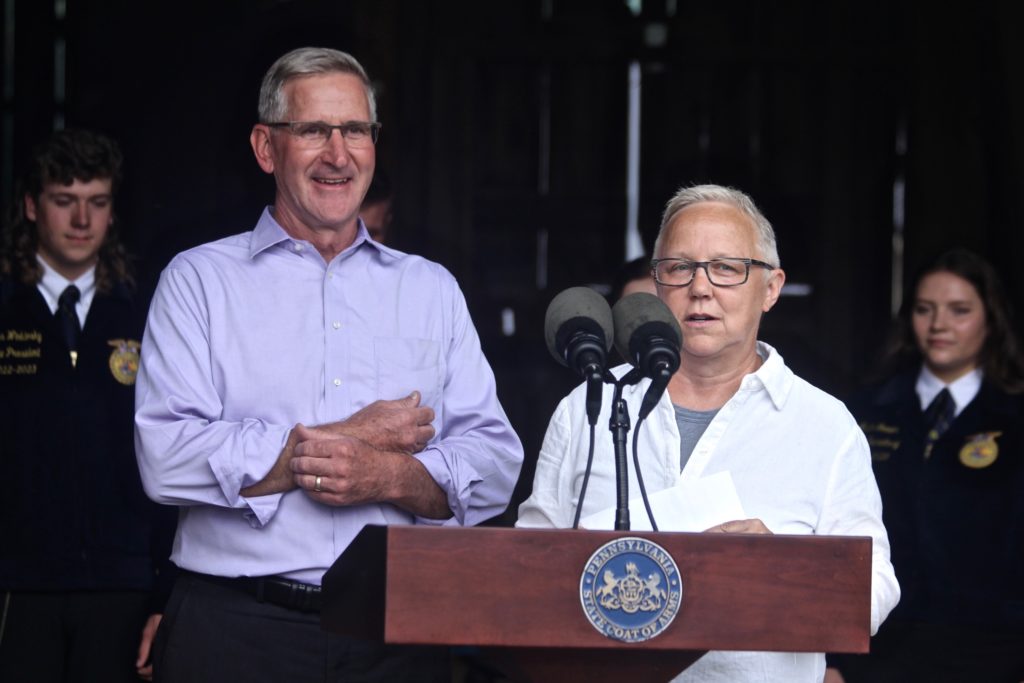
To date, the bill has created about 2,000 different grants “in all shapes and sizes”, Redding said, and has had far-reaching impacts on and off the farm. He cited cutting-edge technology at an Allentown farm, a school hydroponic system, an apprenticeship program in Pittsburgh and a project at an Erie school district to create a farm that is integrated into both curriculum and the cafeteria.
“What I’m particularly proud of is it’s the first generation and the 10th generation,” Redding said. “It’s the Amish and the English. It’s the forest and the livestock and the plants. It is Black and it’s white and it’s Asian. It is so many things that give us all a reason to celebrate agriculture when we see the diversity of it.”
Penn State College of Agriculture Dean Richard Roush called the Farm Bill “innovative” in its approach that is both comprehensive and focused on key issues like business development, improved processing capabilities, protection of agriculture against disease and disaster and workforce development.
Pennsylvania’s system for preserving farmland is a “great feature,” but farmers are needed to secure the agricultural industry, he said.
“We need more farmers,” Roush said. “It doesn’t do any good preserving farm land if we don’t have the farmers to populate it.”
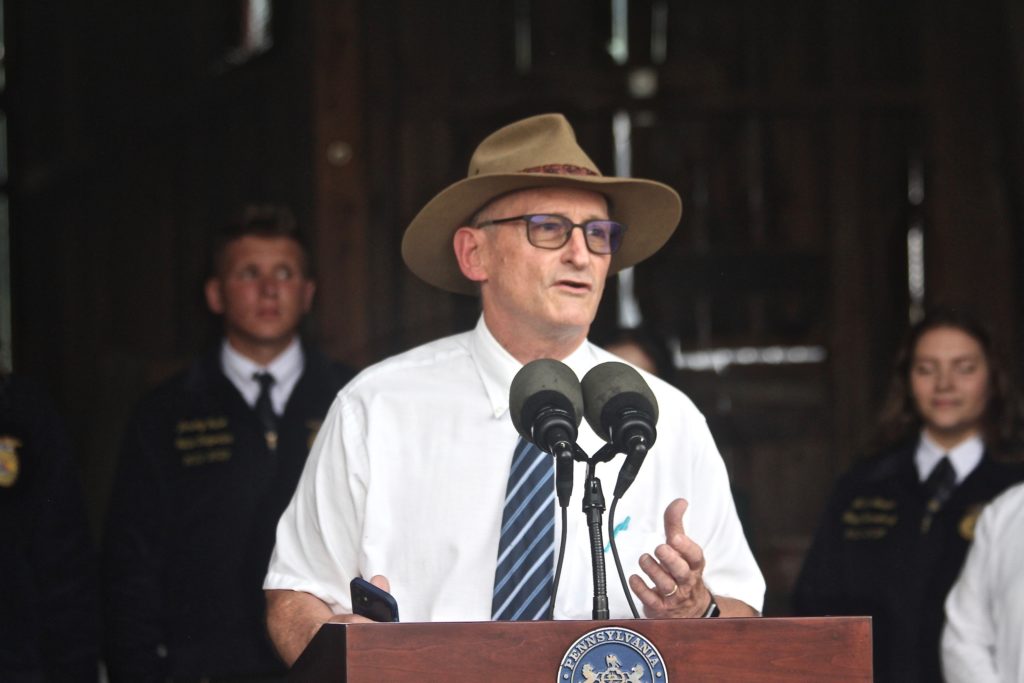
Jessica Herr is a young, fifth-generation farmer from Lancaster County who is representing Pennsylvania as its national FFA officer candidate. She called the Farm Bill a “win-win” for the future of Pennsylvania’s agricultural community
“We celebrate Pennsylvania agriculture and celebrate the heritage and the legacy of generational farmers like myself or the Hardings that we’re visiting here today, and the Farm Bill creates opportunities like the Farm Vitality Grants to keep that… heritage alive,” Herr said. “But the Pennsylvania Farm Bill has also created opportunities for youth just like myself and our 4-H state officers here today to be the next generation and be the future of the agricultural industry to continue to build that community that we all get to call home.”
